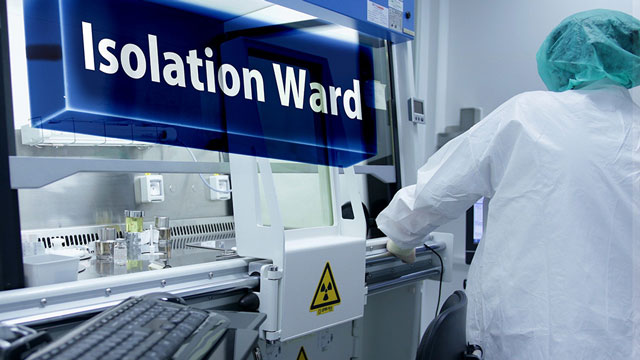
Health officials in Canada are concentrating on containing coronavirus disease to keep it from spreading and infecting healthy and elderly people.
Most provinces and territories have established dedicated telephone lines (through their HealthLinks system) to provide information to those who worry they may be infected.
Symptoms have included:
*fever
*cough
*difficulty breathing
*pneumonia in both lungs.
READ MORE: About coronaviruses
Because the symptoms are similar to a cold or flu, the government of Canada recommends people call first before visiting a health clinic or hospital emergency centre.
“If you are ill and must visit a health care professional, call ahead or tell them when you arrive that you have a respiratory illness,” it says on Canada.ca.
“You may be asked to wear a mask while waiting for or receiving treatment to prevent the spread of the illness.”
Several cities have opened designated testing centres with plans to expand into rural areas.
The government says the risk is coming from people travelling home from outside Canada, as the outbreak expands around the globe.
So the government is asking them to “isolate” at home as quickly as possible and call their health care provider or public health authority.
“Tell them your symptoms and travel history. Let them know whether you have had direct contact with animals or a sick person, especially if they have had symptoms.”
Infections are diagnosed by health care providers based on symptoms and confirmed through laboratory tests.
READ MORE: Being prepared
At this time, there is no vaccine for COVID-19 or any natural health products that are authorized to treat or protect against it.
“Most people with mild coronavirus illness will recover on their own. Your health care provider may recommend steps you can take to relieve symptoms.”
The flu vaccine will not protect you.
“While coronaviruses are a respiratory illness, these infections are not the same as those that cause the flu,” according to Canada.ca.
“COVID-19 is a new disease that has not been previously identified in humans.”
READ MORE: Present situation
It was March 11, when the World Health Organization assessed COVID-19 as a pandemic.
Since then, a picture has emerged of who is contracting the disease in Canada. So far:
*onset of illness occurred between Jan. 17 and March 9, 2020
*50 per cent of cases are female
*29 per cent of cases are 60 years old and over
*12 per cent of cases have been hospitalized
*1 person has died of COVID-19
*79 per cent of cases are travellers and 8 per cent are close contacts of travellers.
Health authorities say the risk to the general population “is low” but some members of the public are at a higher risk. These include:
*aged 65 and over
*with compromised immune symptoms
*with underlying medical conditions.
There are also increased risks for Canadian travellers abroad. That’s why the government is advising against “non-essential travel” outside of Canada, this includes cruise ships.
READ MORE: Effective hand hygiene
Any travellers should self-isolate for 14 days after their return from outside Canada, the government says.
And they should monitor their health for fever, cough or difficulty breathing.
It’s also important to wash your hands often for 20 seconds and cover your mouth and nose with your arm when coughing or sneezing.
APTN News has put all of its COVID-19 coverage on one page. Visit it here.









